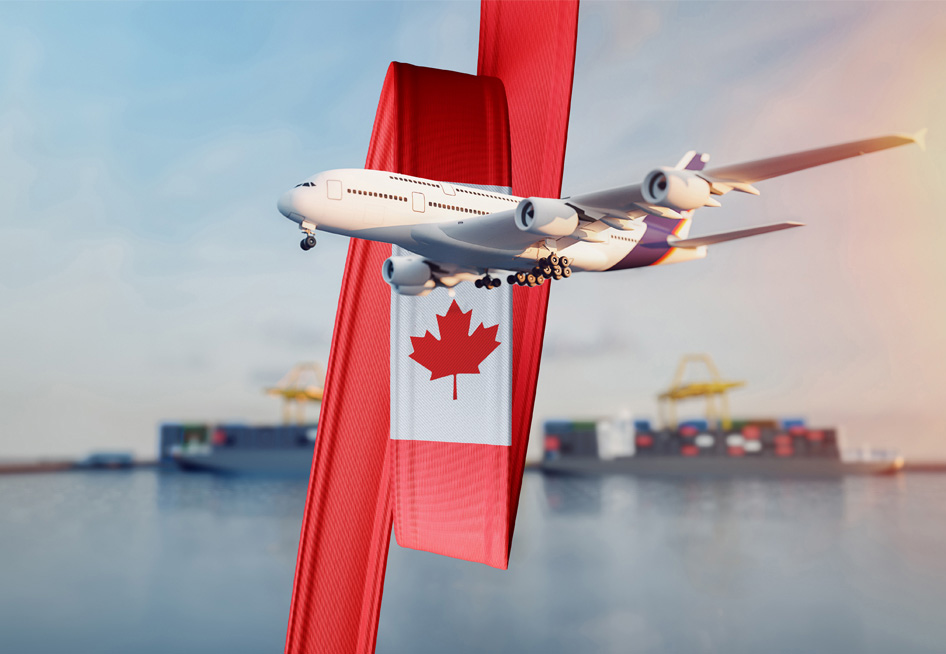Air freight shipping to Canada requires careful consideration to ensure a successful and efficient process. In this article, we’ll explore the key factors to consider, benefits, challenges, and future trends of air freight logistics.
Factors to Consider When Shipping Air Freight to Canada
As the world becomes more interconnected and global trade continues to expand, air freight shipping to Canada has become an essential component of the international logistics industry. Whether you are importing products from China or exporting goods to the North American market, air transport offers numerous benefits such as speed, reliability, and flexibility.
However, shipping air freight to Canada also comes with its own unique challenges and risks. As a freight forwarder and logistics company called “Hamrahdezh”, we have extensive experience in handling air freight shipments to Canada. In this article, we will cover the important factors that you need to consider when shipping air freight to Canada.
Air Freight Carriers and Services in Canada
When it comes to air freight shipping to Canada, there are a number of carriers and services available. The major Canadian airports such as Toronto, Vancouver, and Montreal have numerous air freight carriers operating flights to and from destinations around the world. Some of the major air freight carriers servicing Canada include Hamrahdezh, Air Canada Cargo, FedEx, UPS, DHL, and Purolator.
In addition to carriers, there are also a variety of air freight services available depending on your specific needs. These can include express shipping, next flight out (NFO), and deferred shipping options. It’s important to carefully consider your shipping requirements and select a carrier and service that best fits your needs.
Air Freight Packaging and Handling

Proper packaging and handling is essential to ensure that your air freight shipment arrives at its destination safely and intact. This is especially important for delicate or fragile items such as imported food or commodities.
When shipping air freight to Canada, it’s important to use sturdy and durable packaging materials that can withstand the rigors of air transport. This can include pallets, crates, or containers depending on the size and weight of your shipment. Additionally, it’s important to properly label your shipment with all necessary information such as destination, consignee, and product description.
Tips for Successful Air Freight Shipping to Canada
There are several tips that you can follow to ensure a successful air freight shipment to Canada. These include:
- Properly package and label your shipment
- Verify all customs requirements and regulations
- Choose a reliable carrier and service that meets your needs
- Obtain insurance coverage for your shipment
- Track your shipment in real-time to monitor its progress
Benefits of Air Freight Shipping to Canada
There are numerous benefits to shipping air freight to Canada. These include:
- Faster transit times compared to sea freight
- More reliable delivery schedules
- Greater flexibility in terms of shipment size and weight
- Ability to transport high-value and time-sensitive goods
Challenges and Risks of Air Freight Shipping to Canada
While air freight shipping offers many benefits, there are also some challenges and risks to consider. These can include:
- Higher freight rates compared to sea freight
- Limited capacity on aircraft for oversized or heavy shipments
- Risk of damage or loss during transit
- Customs clearance and regulatory compliance requirements
Conclusion
Shipping air freight to Canada can be a complex process with many factors to consider. As a freight forwarder and logistics company, “Hamrahdezh” can provide the expertise and guidance that you need to navigate the challenges and risks of air freight shipping.
The maximum weight and size for air freight shipments to Canada can vary depending on the carrier and service that you select. Generally, the maximum weight for air freight shipments is around 1000 kg (2204 lbs) per piece, but this can vary depending on the specific aircraft being used. It’s important to check with your carrier for their specific weight and size limitations.
When shipping air freight to Canada, there are several documents that are required for customs clearance. These can include a commercial invoice, bill of lading, packing list, and any necessary permits or licenses depending on the type of goods being shipped. It’s important to work with a qualified freight forwarder who can assist you with the preparation and submission of these documents.
If your air freight shipment is delayed or damaged during transit, it’s important to immediately notify your carrier or freight forwarder. They can assist you with filing a claim and coordinating any necessary repairs or replacements.
